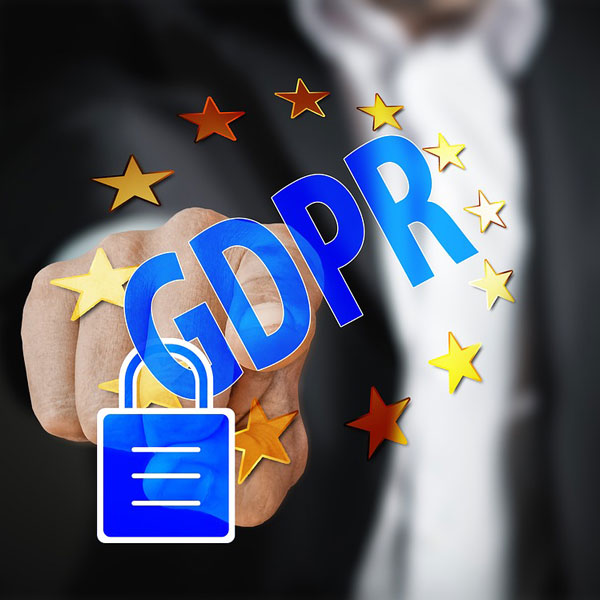What Does GDPR Mean for Your Business?

 Regulations are a fact of life when it comes to doing business. They can impact what you need to keep a record of, how long you need to keep data, and even what type of data you can collect. With the increasing number of cybersecurity threats, businesses need to be able to protect their clients’ information. Also, many countries are now putting protections in place that allow individuals to control the data you collect and how you can use it.
Regulations are a fact of life when it comes to doing business. They can impact what you need to keep a record of, how long you need to keep data, and even what type of data you can collect. With the increasing number of cybersecurity threats, businesses need to be able to protect their clients’ information. Also, many countries are now putting protections in place that allow individuals to control the data you collect and how you can use it.
Often known as General Data Protection Regulation (GDPR), this is a reform movement meant to give individuals greater control over their personal information and give businesses a more level playing field. We will discuss how the GDPR came into being, what it means to be compliant, and how it applies to your business
EU Parliament Approves GDPR
In January of 2012, the European Commission (EU) unveiled plans to make Europe fit for the digital age. Four years later, an agreement was reached that laid out what was going to be covered and how those rules will be enforced.
At its core, the GDPR is a set of rules designed to give EU citizens increased control over their data by simplifying the regulatory environment for businesses so both individuals and business could benefit. As a business in the United States, you might not think that this impacts you, but in the digital age, doing business with those in Europe means changing how you collect data, how you can use it, and even how you protect it. Any company processing and holding personal data of EU citizens is subject to the GDPR, regardless of where they are located.
The point was to harmonize data privacy laws while empowering citizens and businesses alike to reconsider how they approach data privacy.
Understanding What GDPR Compliance Means?
In the cyber world, security breaches are inevitable. Even as new defenses are created, cyber threats are also increasing and getting more sophisticated. People who hack your business are likely not to have the interests of your customers at heart.
The rules were approved in April 2016 and they are now being enforced as of May 2018. Organizations that are not in compliance could face heavy fines.
What is Personal Data Under the GDPR?
Personal data, according to the regulations, is any information relating to an identifiable person who can be directly or indirectly identified by referencing that identifier. There is a wide range of personal identifiers that can constitute personal data, including name, location data, and other technological identifiers.
Conditions for consent of the use of an individual’s data is no longer able to be hidden in terms and conditions but must be provided in an easy to understand and accessible form. Furthermore, it needs to be as easy to withdraw consent as it is for an individual to give it to you.
The tools available to businesses that meet EU regulations will also be available for businesses to use with all their customers. For businesses, it means that you need to be sure that you have consent and that you recognize you will be held to a higher standard if a breach of your data does occur.
Protections Are Coming Stateside
For companies doing business primarily in the United States, it is important to recognize that the states are enforcing privacy laws and creating regulations to give control back to individuals. For instance, California recently passed a digital privacy law that gives individuals control, but also insight, into how their information is being gathered and used online.
That means that individuals can tell companies to delete their information and not to sell or share it with other companies or partners. If an individual opts out, then you still need to provide the same level of service to them. This legislation will not come into effect until January 2020, however, companies need to start preparing for these new regulations now.
What Can You Do to Protect Your Business?
First, you need to be sure that you are obtaining consent for all the data that you are collecting from individuals, particularly those living in areas covered by these laws and regulations. While most businesses have a terms of use agreement, it might be wise to consider a separate document that allows them to give consent easily to comply with the GDPR and new regulations from California.
Additionally, you need to review the cybersecurity policies of your business, making sure that you have the right protections in place to limit the chances of a breach and access to personal data if you do have a breach. For assistance, contact us for a free evaluation of your cybersecurity systems today.
Sagacent Technologies offers technology management and support, including proactive/preventative maintenance, onsite and offsite data back-ups, network and security audits, mobility solutions, disaster planning and emergency business resumption services. The company serves clients of 10 to 150 employees within the Silicon Valley region.
